Civil engineering student
“I was particularly surprised by how closely intertwined the gameplay was with my geography lessons in how big a role human experience plays in a ‘good’ design decision.”
The Institution of Civil Engineers (ICE) wanted a way of promoting civil engineering as a potential career choice for college students. ICE invited Make Real to collaborate in building an online game. The purpose of the game is to give students a practical introduction to civil engineering and the different roles available. It supports an annual competition, in which student teams collaborate to play the game and submit a video proposing a civil engineering project to improve their local community.
The Institution of Civil Engineers is a 200 year old society that promotes the role of civil engineering in improving lives. It has about 95,000 members worldwide. As well as acting as a qualifying body for civil engineers, it plays an important role in the education of new and potential engineers.
Since the first launch of the game in 2021, it’s had a huge impact:
ICE also launched a follow-up standalone game, Pollution Control. Players research the causes of pollution, gaining insight into the environmental, social, financial and political aspects of civil engineering. It’s free to try out and available online – give it a go by clicking on the CityZen poster in this interactive environment.
The winning teams have also garnered local press coverage which you can check out from Love Belfast and Times Local News.
“There was a real change in dynamic and people took on different roles. One student brought his iPad in every week to bring up notes from the last session. He didn’t have any passion for engineering beforehand. He’s now applying to do engineering next year!”
Teacher, mixed state school
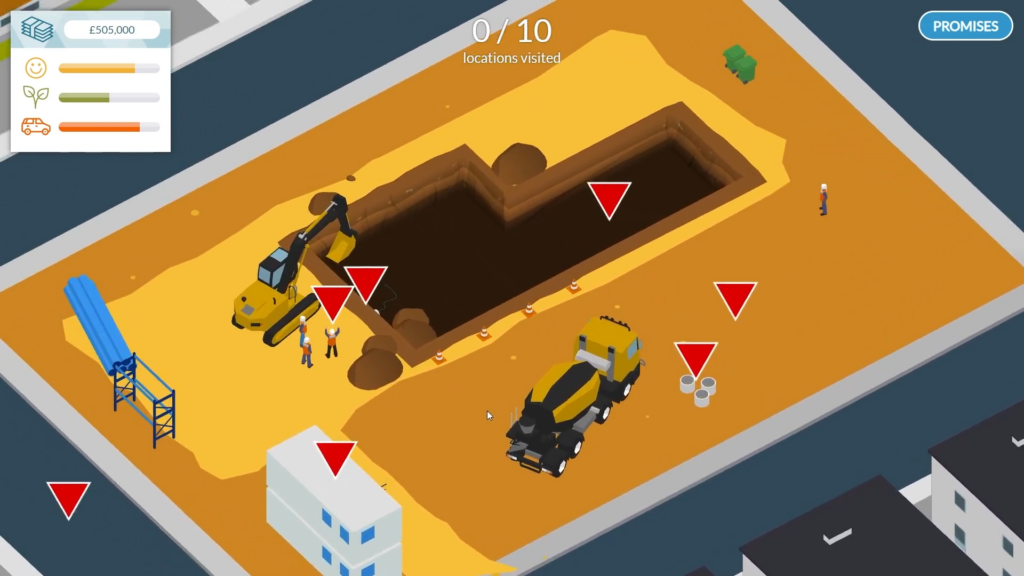
Students can explore the 3D environment.
Civil engineers design, build and maintain the infrastructure and essential services that ensure our communities are pleasant and productive places to live. It’s critical that new civil engineers are attracted to the profession to ensure enough talented engineers are available for this type of project.
Students in their final years of school may have an interest in science, technology and engineering but may not understand much about the role of civil engineer. ICE wanted to address this in a fun, engaging and challenging way. The solution had to fit well around the school curriculum and result in a tangible outcome that students could proudly add to their portfolio of work.
“The game allows us to realistically demonstrate the pure breadth of different challenges Civil Engineers need to overcome when delivering projects, especially the people element of what we do. The game demonstrates Civil Engineering isn’t just about maths and physics and we are a multi-talented community. This level of interactivity, breadth of experience and realism wouldn’t be achievable with the ‘normal’ type of STEM engagement we do.”
Helen Littler, Civil Engineer and ICE STEM Ambassador
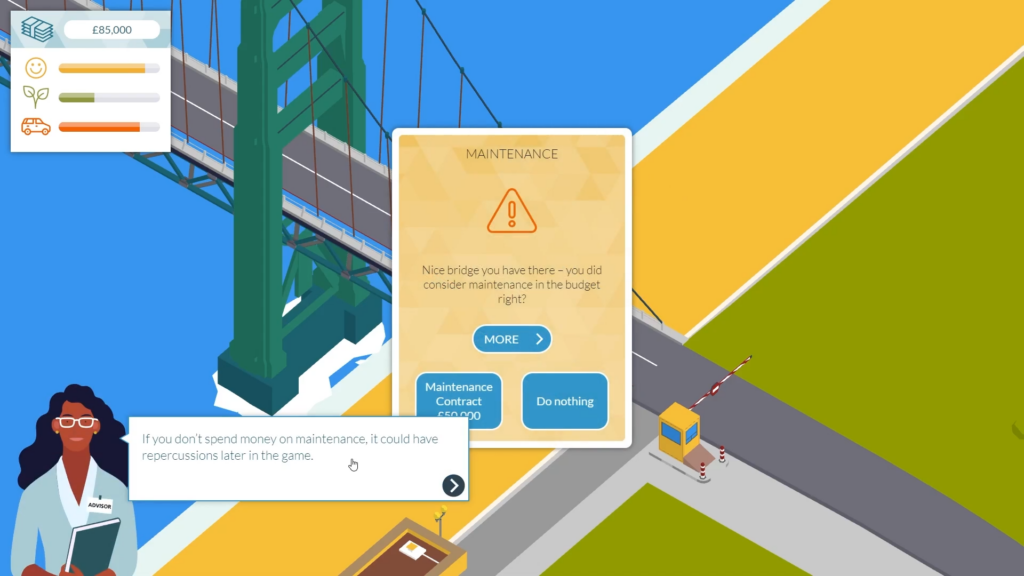
Decisions made throughout the game can have repercussions later on.
The game is an online city management game designed to be played by teams, in which teams must complete four civil engineering projects:
These challenges have been designed to be met over a period of four weeks. Each team is advised to assign roles within the team:
These roles can be rotated among the team members on a week by week basis.
At the start of each week, the teams are first presented with their initial budget and their overarching goal for that week, for example, building a bridge.
The teams must then make decisions about the best way to meet their goal. For example, when building the bridge they must choose an appropriate crossing point. Will they connect a residential area to the city centre, or will they focus on creating a new route into an industrial area? Each choice will also have other implications, such as what type of bridge is needed, which will have an impact on cost.
The teams can optionally choose to invest in additional information to help them with their decision, for example geotechnical surveys, but these costs will reduce the available budget for the rest of the project.
Stakeholder management is another important aspect of the game. At the start of each project, the team will hear requests from three different stakeholders and will have to decide whether or not to accede to those requests. Agreeing to a request can pay dividends in overall satisfaction at the end of the project, provided the team delivers on their promise. But if they promise and underdeliver they will end up with an unhappy stakeholder and a lower approval rating.
When allocating budget, the teams have other factors to consider, such as:
In the final week, the freak storm event, decisions the teams made in earlier weeks could come back to haunt them. For example, if you opted for a low cost bridge and no maintenance contract, how well will your bridge stand up to high winds and flooding?
At the end of each week, the team sees the outcomes of their decisions. They are scored on relevant factors such as budget, satisfaction, sustainability and congestion.
A leaderboard allows teams to compare their scores and encourages them to find the best possible solutions.
By playing the game, students are exposed to and understand some of the complexities of civil engineering and the role it plays in improving society.
“I enjoyed the game most, because it really did test our knowledge and I had a great time discussing the solutions to the challenges given with my team.”
Year 13 student
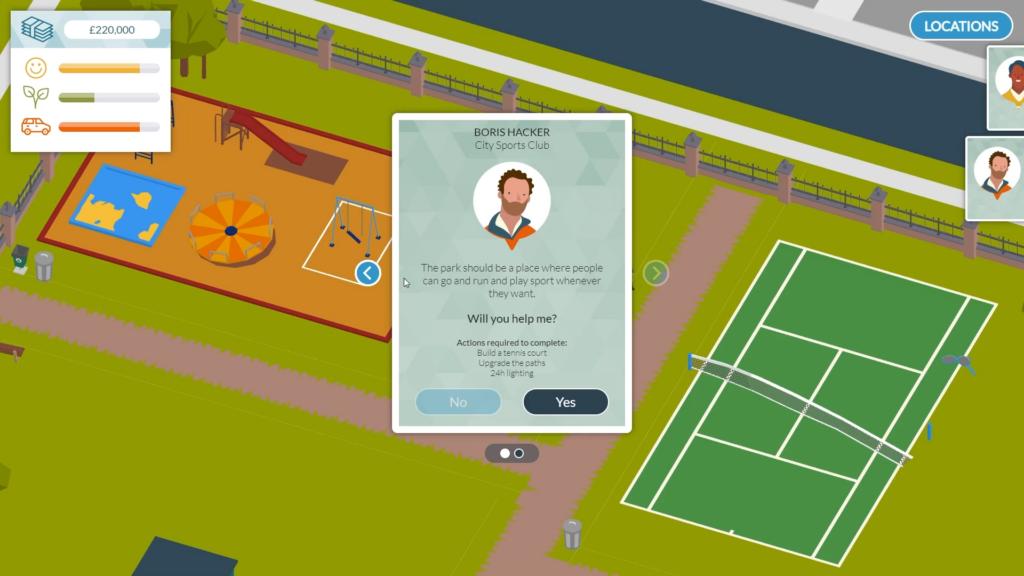
Students need to consider stakeholders in their decisions.
The game is in active use in schools and the competition is run annually. You can read about the winner of the 2022 competition and learn more about the 2023 competition at the CityZen website: ICE CityZen Award | Institution of Civil Engineers (ICE)
Since the initial release of the game, we have collaborated with ICE on a couple of updates:
This project was an incredibly rewarding one for the Make Real team. As our Principal Immersive Learning Designer, Tim, puts it: “For me the best thing about CityZen was working so closely with the people who are going to be playing it – prototyping with teachers and students to make sure that everything works and is actually fun, hearing the discussions the game starts, and then seeing the brilliant videos that students make.”
We’re proud to have created a game that’s had such impact on young people and in supporting ICE to make civil engineering careers more accessible to students. Participants in the competition have gone on to study civil engineering and even obtained scholarships to do so
“I was particularly surprised by how closely intertwined the gameplay was with my geography lessons in how big a role human experience plays in a ‘good’ design decision.”
“I enjoyed the game most, because it really did test our knowledge and I had a great time discussing the solutions to the challenges given with my team.”
“’CityZen is the first time that [student] has ever collaborated in six years at the school.”
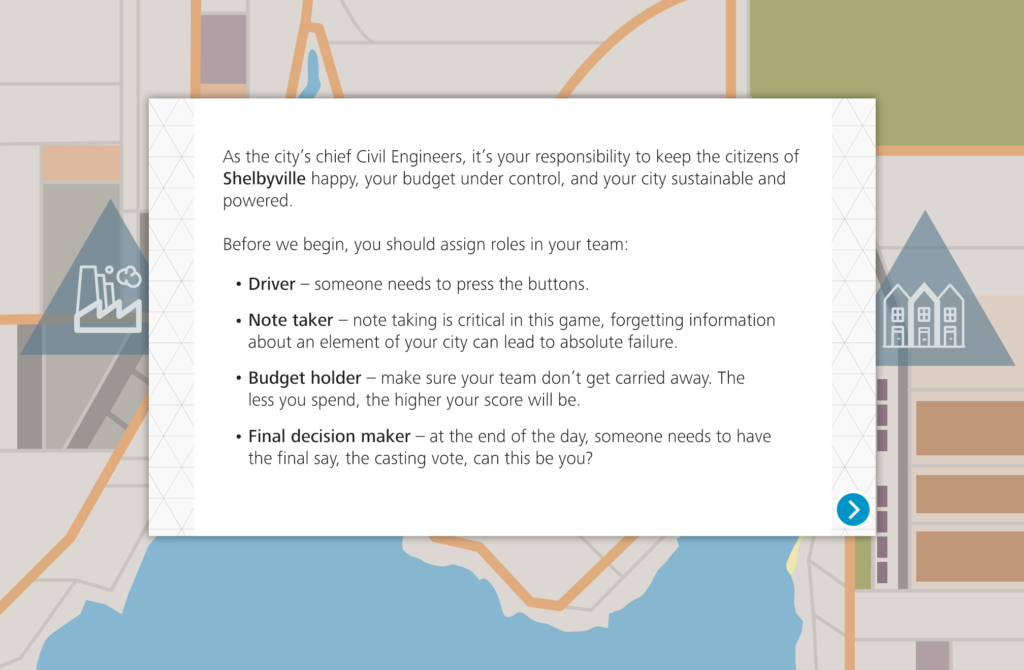
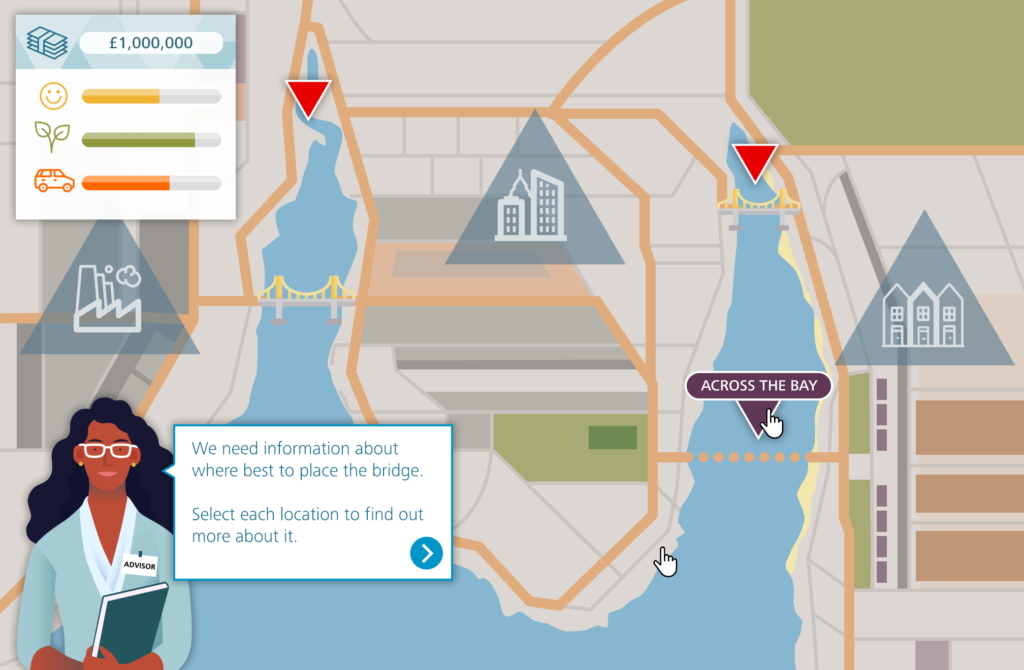
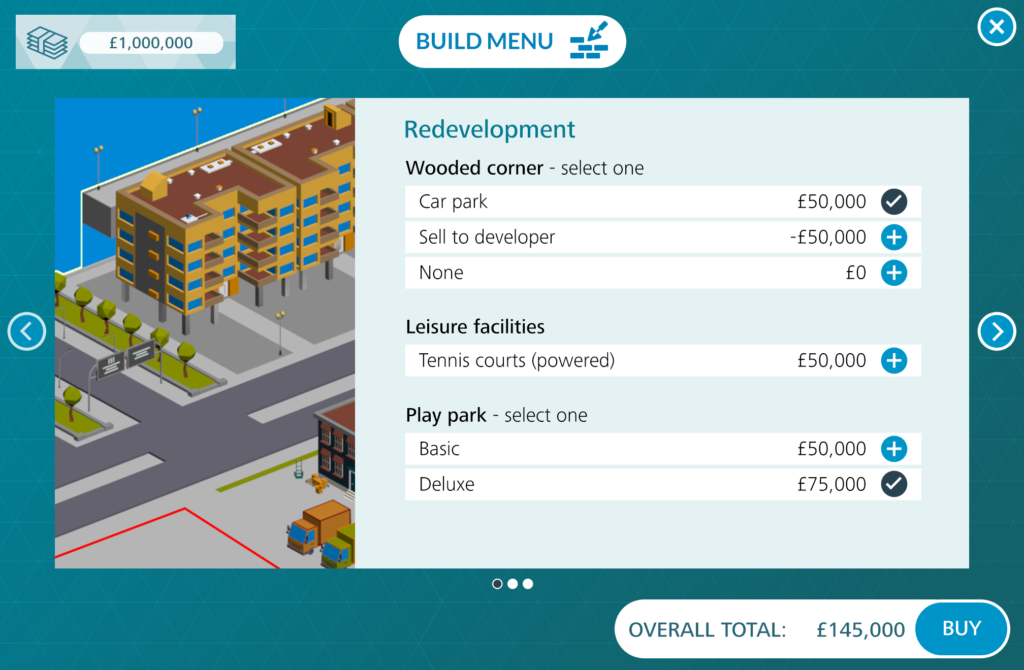
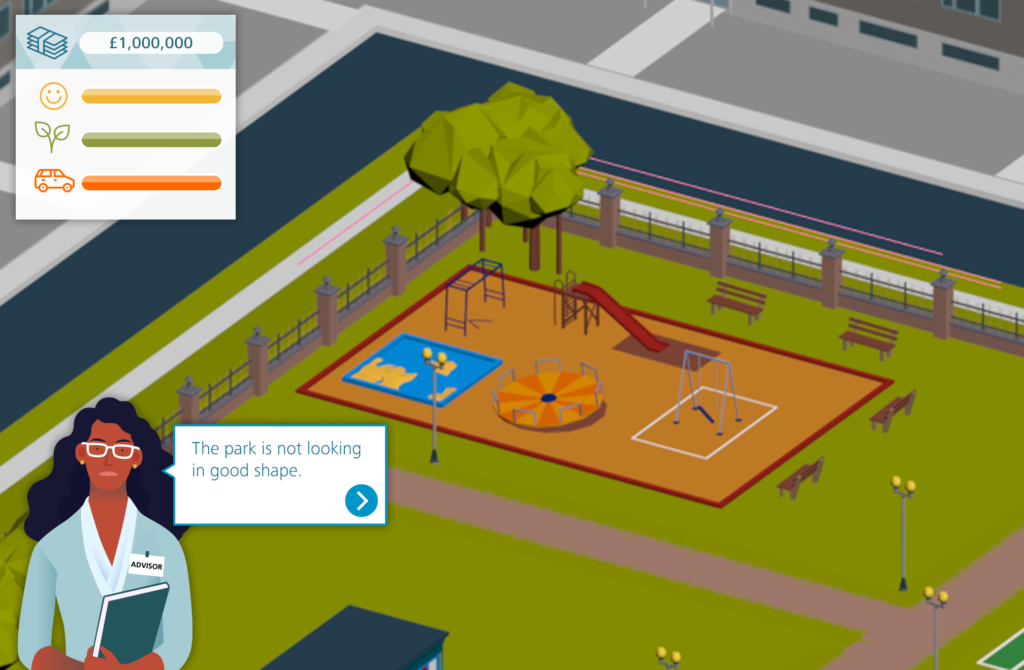
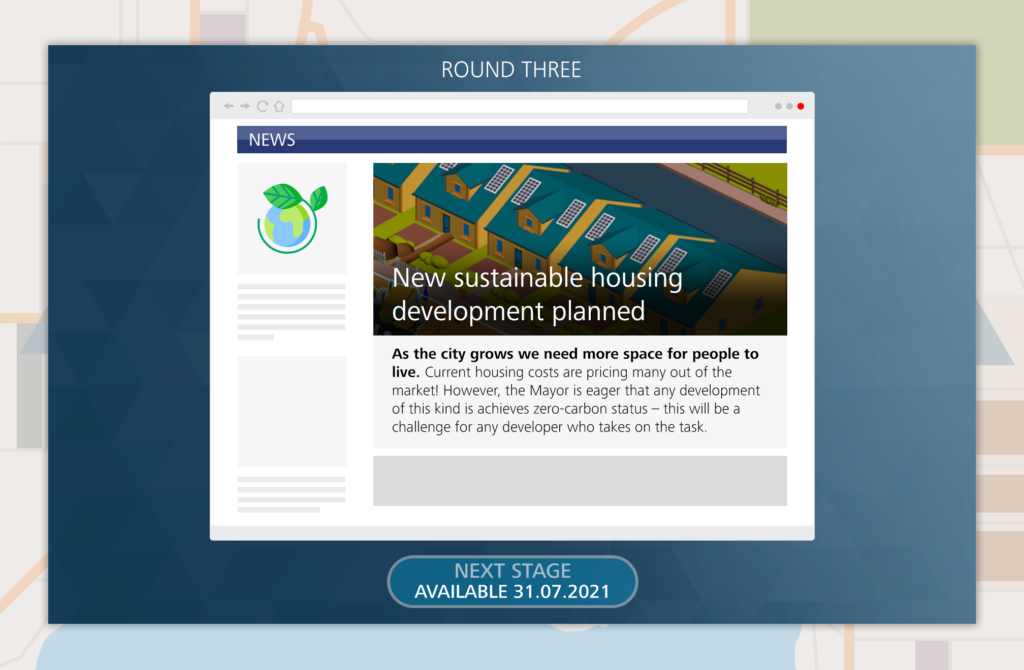
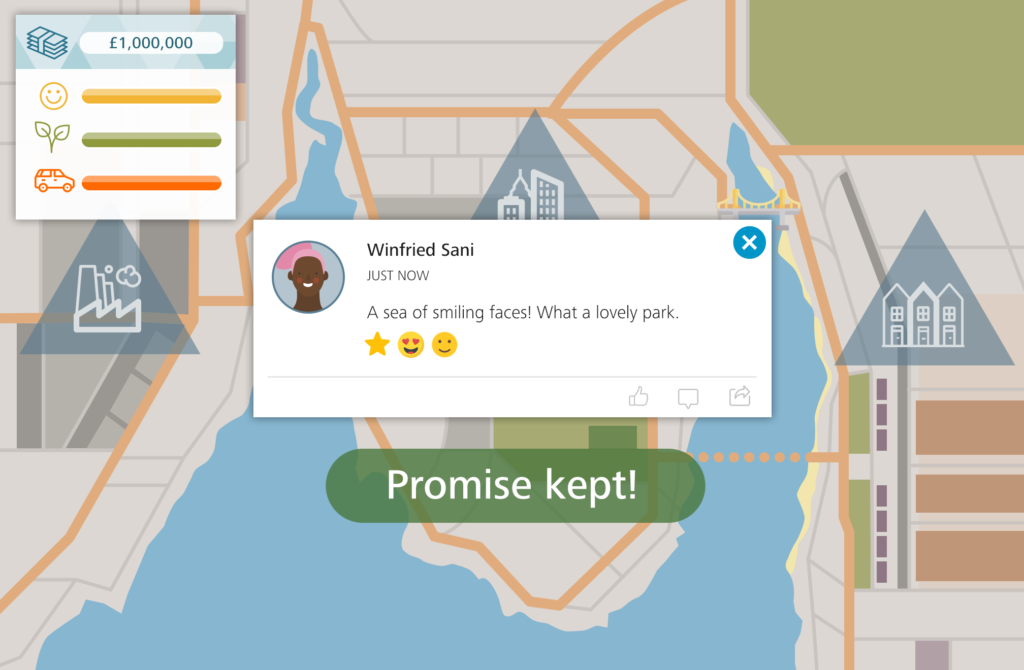
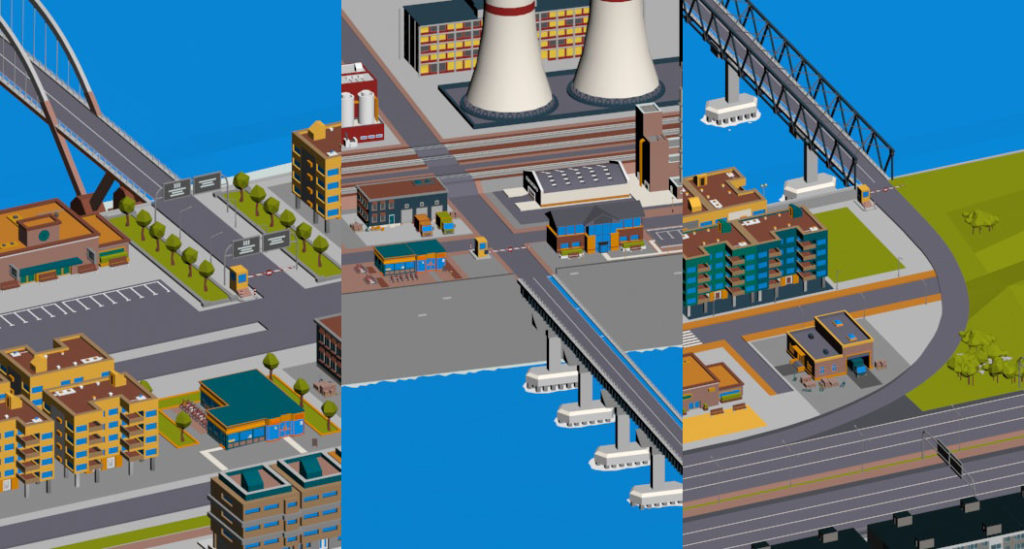
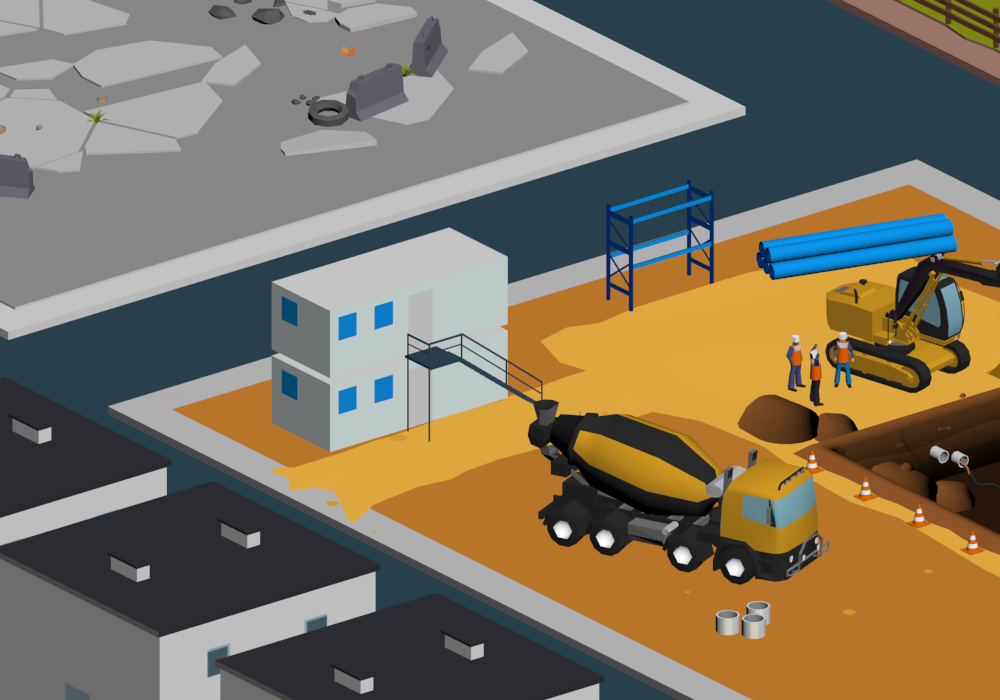
We’re always happy to talk to you about how immersive technologies can engage your employees and customers. If you have a learning objective in mind, or simply want to know more about emerging technologies like VR, AR, or AI, send us a message and we’ll get back to you as soon as we can.